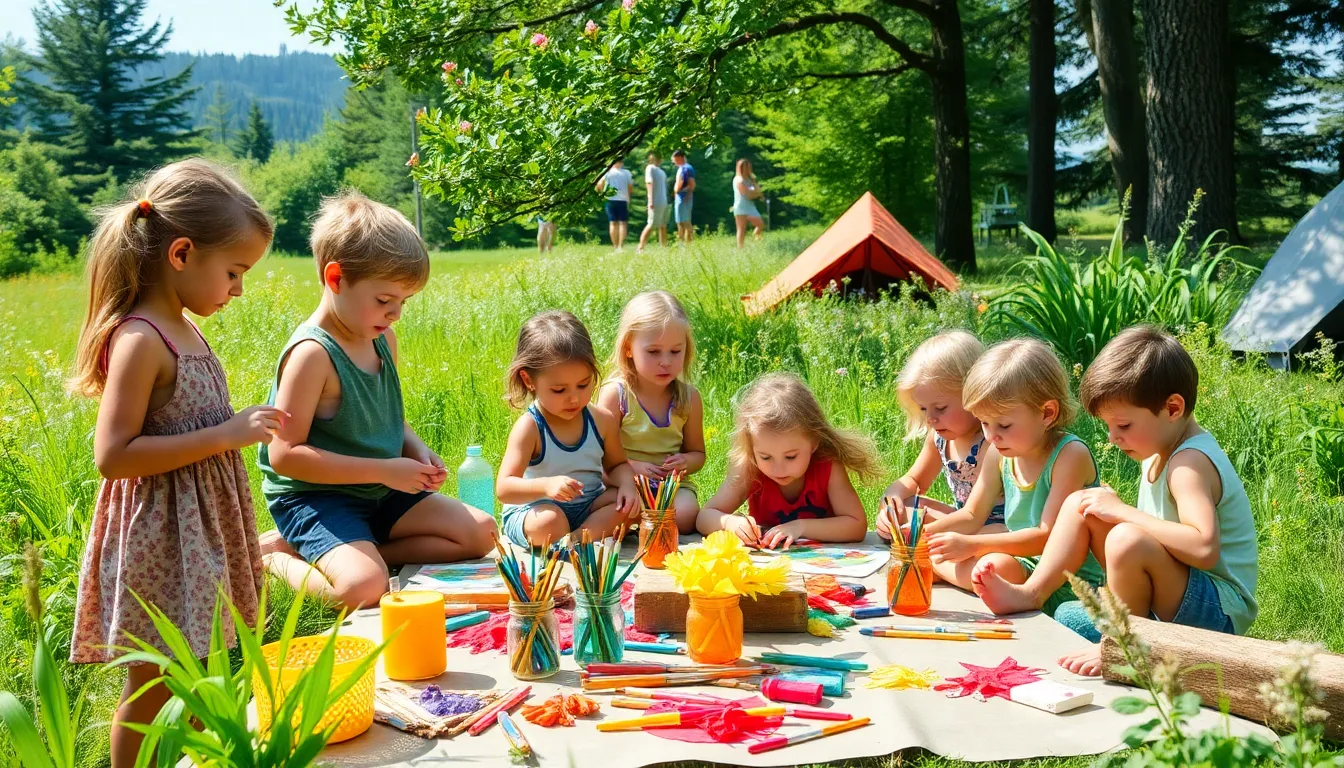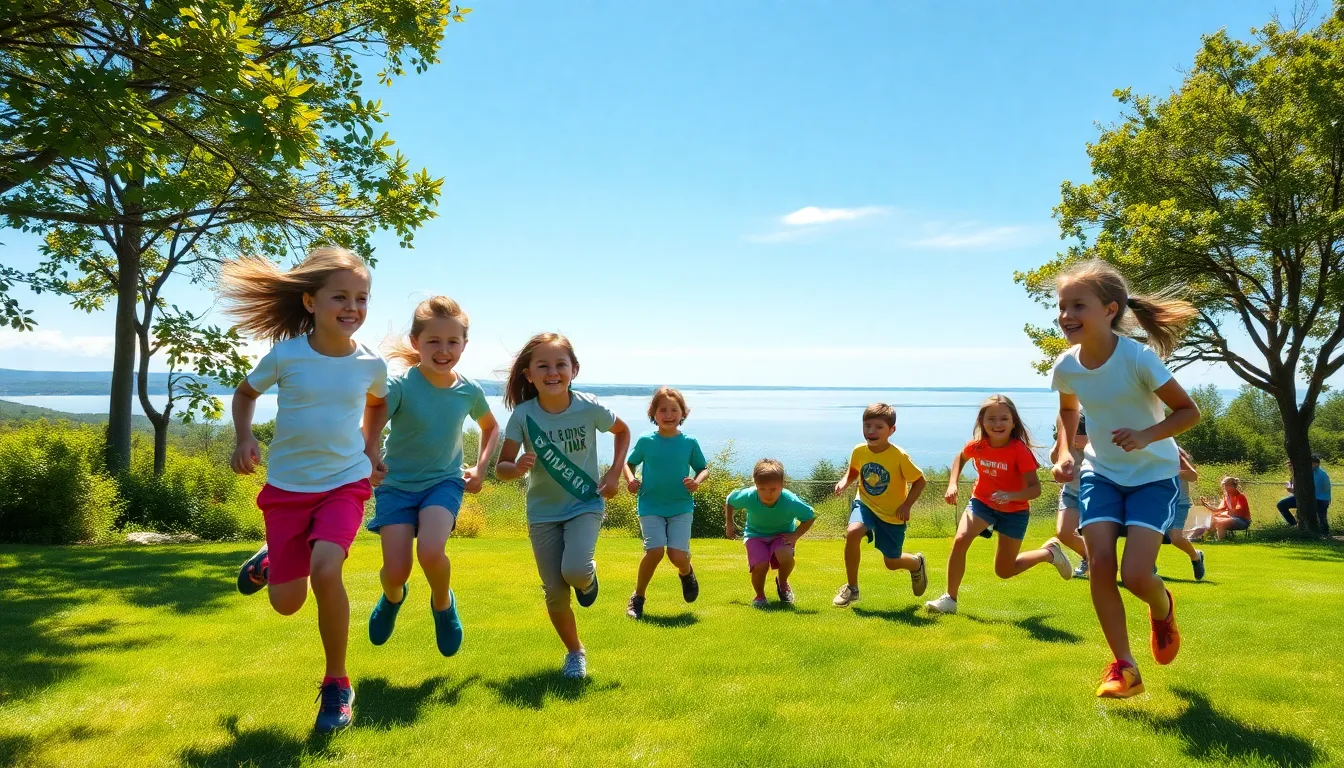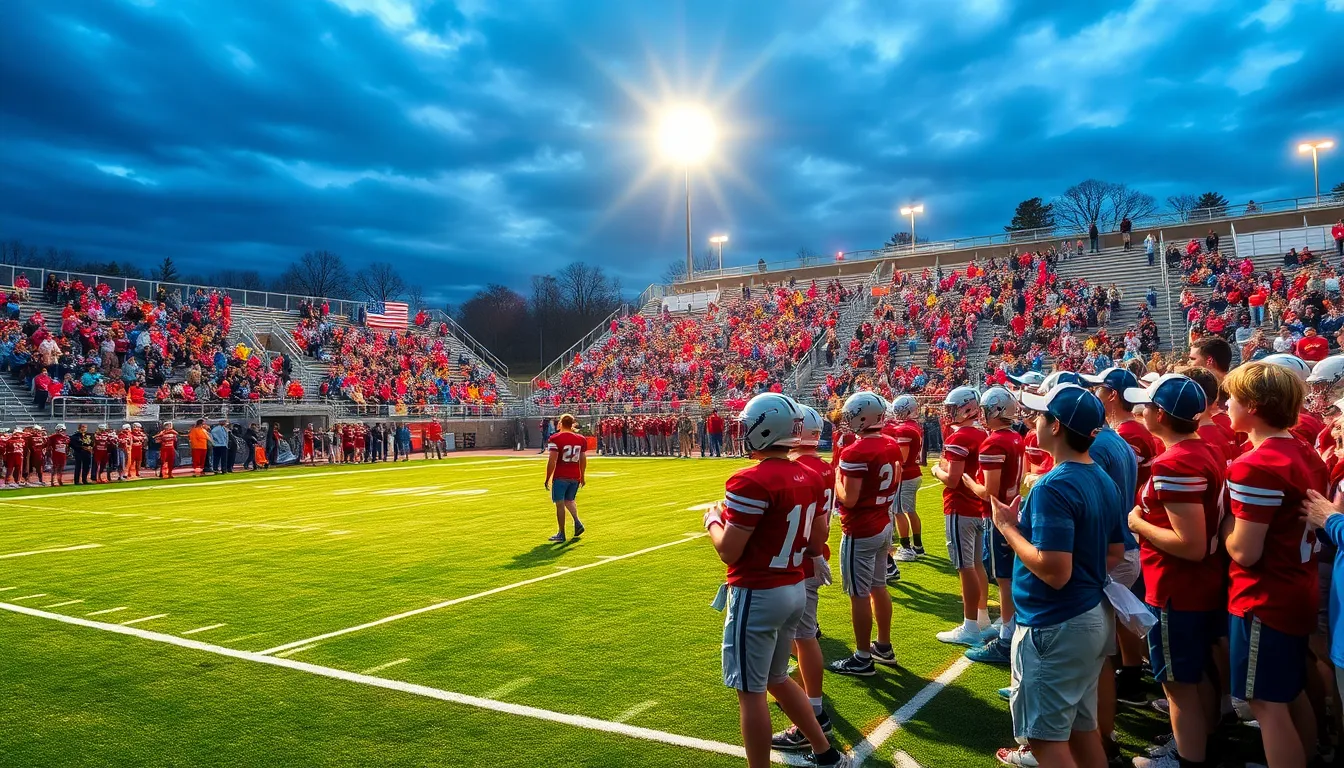Table of Contents
ToggleSummer’s just around the corner, and that means it’s time to trade in textbooks for tents and classrooms for campfires. Whether a child’s a budding artist, a future scientist, or a mini adventurer, the right summer camp can turn those long, lazy days into unforgettable experiences. After all, who wouldn’t want to spend their summer mastering the art of canoeing or perfecting the craft of s’mores?
Best Summer Camps Overview
Summer camps play a crucial role in a child’s development, offering unique experiences that foster growth and learning. They encourage exploration outside of traditional classroom settings.
Importance of Summer Camps
Summer camps enhance social skills through group activities. Children interact, collaborate, and form friendships while participating in various programs. Personal growth occurs as campers take on new challenges and develop confidence. Camps also provide opportunities for kids to explore passions such as sports, arts, and nature. Engaging in hands-on activities encourages creativity and critical thinking. Parents often notice improved independence and responsibility in their children after attending camp. With skilled counselors, camps ensure a safe and nurturing environment that supports individual growth and teamwork.
Types of Summer Camps
Numerous summer camps cater to diverse interests and age groups. Arts camps focus on skills like painting, music, and theater, fostering creativity. Sports camps, specializing in soccer, basketball, and swimming, develop athletic abilities and teamwork. Adventure camps often involve outdoor activities such as hiking, canoeing, and rock climbing, promoting physical fitness. Science camps allow young minds to experiment through hands-on projects, encouraging curiosity and discovery. Specialty camps may include programs for technology, language learning, or specific hobbies. Choosing the right camp involves considering a child’s interests, ensuring an enjoyable and enriching experience.
Top 5 Best Summer Camps

Exploring summer camps opens up numerous options for enriching experiences. Each camp offers unique features and activities that cater to various interests and age groups.
Camp A: Features and Activities
Camp A excels in arts and crafts, providing young creators with engaging projects. Kids explore painting, pottery, and sculpture. Outdoor spaces support activities like hiking and nature crafts. Group workshops foster teamwork and creativity, ensuring campers learn from each other. Specialized instructors guide each project, enhancing skills and boosting confidence.
Camp B: Features and Activities
Camp B focuses on sports and physical activities, promoting fitness and teamwork. Available activities include soccer, swimming, and rock climbing. Daily practice sessions teach skills and sportsmanship. Friendly competitions encourage cooperation and build lasting friendships. Coaches provide valuable feedback, helping campers improve and enjoy their experience.
Camp C: Features and Activities
Camp C emphasizes science and discovery, sparking curiosity in young minds. Hands-on experiments and engaging workshops cover topics like robotics and environmental science. Field trips to local science museums enhance learning. Campers collaborate on projects, developing critical thinking and problem-solving skills. Enthusiastic staff inspire passion for science and exploration.
Camp D: Features and Activities
Camp D highlights adventure and outdoor exploration, appealing to thrill-seekers. Activities include canoeing, zip-lining, and fort-building. Safety is a priority, with trained staff ensuring a secure environment. Team-building exercises encourage collaboration and trust among campers. Participants create unforgettable memories as they conquer outdoor challenges.
Camp E: Features and Activities
Camp E showcases specialty programs tailored to specific interests, such as music and theater. Talented instructors lead engaging sessions in drama, dance, and instrument lessons. Campers perform in end-of-session showcases, showcasing their hard work and skill development. Peer collaboration enriches the learning experience, enhancing confidence in their abilities.
How to Choose the Right Summer Camp
Choosing the right summer camp involves understanding your child’s needs and preferences. Several factors come into play when making this decision.
Assessing Your Child’s Interests
Begin by discussing with your child what activities excite them the most. Identifying interests in areas like sports, arts, or sciences helps narrow down suitable camps. Camps often specialize in particular themes, making it essential to find a match. Children thrive in environments where they can pursue passions, whether it’s creating art or exploring nature. Encouragement to express preferences plays a significant role in ensuring an enjoyable experience. Look for camps that align with what your child wants to explore, as this enhances their motivation and engagement.
Considering Location and Accessibility
Locating a camp near home simplifies logistics for parents and campers alike. Access to safe transportation options can impact your choice significantly. Camps ideal for children often provide convenient drop-off and pick-up schedules. Evaluating travel time helps avoid daily stress for both parents and children. Proximity also allows for last-minute decisions, increasing flexibility. Researching local camps may reveal excellent opportunities that meet your criteria without extensive travel. Prioritizing accessibility contributes to a positive camp experience.
Benefits of Attending Summer Camps
Summer camps provide numerous advantages for children. Social skills develop as campers interact during various activities. Confidence boosts when kids make new friends and collaborate in teams. Personal growth occurs through challenges that foster independence.
Creativity flourishes in environments designed for exploration. Hands-on activities encourage problem-solving, allowing children to think critically. Camps also cater to specific interests—art, science, sports, and adventure—helping kids discover their passions.
Parents often notice increased responsibility as children engage in camp tasks. Outdoor experiences introduce kids to nature, instilling a sense of wonder and respect for the environment. Life skills, such as time management and teamwork, become apparent during camp experiences.
Physical fitness improves through sports and outdoor activities. Kids learn cooperation and discipline while participating in team sports. S’mores and campfires create cherished memories, further enriching the camp experience.
Variety is a central feature of summer camps. From arts and crafts to science experiments, there’s something for everyone. Adventure seekers enjoy thrilling activities like canoeing and zip-lining, sparking excitement.
Temporary separation from parents fosters self-reliance. Trials and triumphs in challenges prepare children for future endeavors. Overall, summer camps create a blend of laughter, learning, and lasting memories, essential for child development.
Summer camps provide a unique opportunity for children to explore their interests and develop essential life skills. With a variety of options available from arts to adventure there’s something for every child. These experiences not only foster creativity and confidence but also encourage meaningful friendships and independence.
Parents can feel confident knowing that selecting the right camp can significantly enhance their child’s summer. By considering individual interests and needs they’ll ensure a fulfilling experience that combines fun with personal growth. As summer approaches investing in a memorable camp experience can lead to cherished memories and lasting benefits for children.





